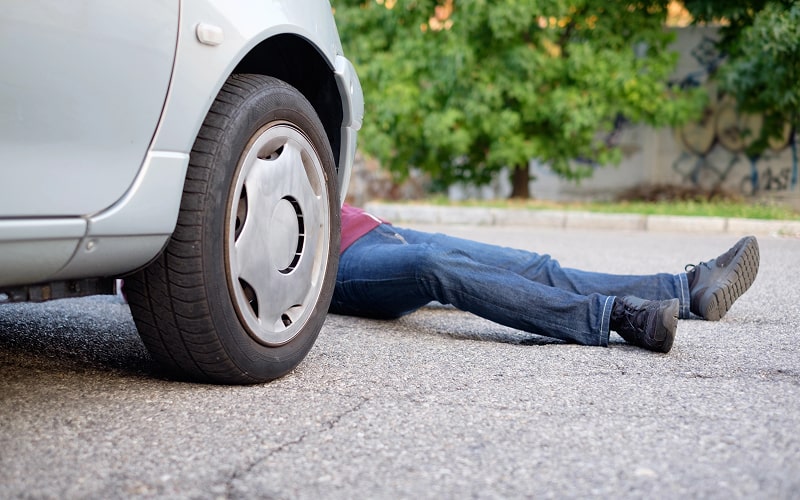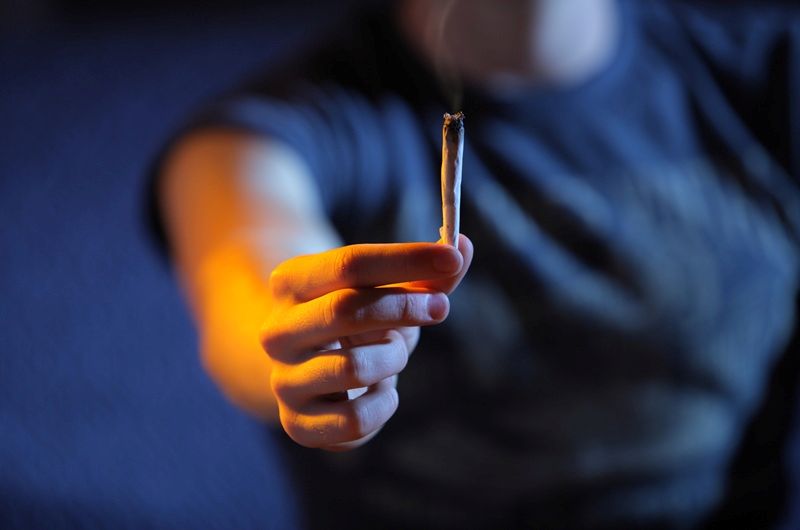Facing a DUI manslaughter charge in Virginia can feel like being lost in a thick fog, unsure of which way to turn. However, a strong defense can act as a guiding light, breaking through uncertainty and revealing a clearer path forward. An experienced Fairfax DUI attorney helps you regain control and make informed decisions about your future.
This article explores DUI manslaughter laws in Virginia, highlighting the two types and their potential penalties. You will also learn how a criminal defense attorney can protect your rights and work to reduce or dismiss charges.

Overview Of DUI Manslaughter In Virginia
DUI manslaughter occurs when you cause the death of another person as a result of driving under the influence of alcohol or drugs. It falls under involuntary manslaughter in Virginia, but certain factors can escalate it to a more severe offense. Understanding the aggravating circumstances that increase penalties is essential when facing these charges.
Involuntary Manslaughter
In Virginia, involuntary manslaughter occurs when driving under the influence results in the death of another person. The law classifies this offense as a Class 5 felony, carrying serious repercussions.
Moreover, the prosecution must prove that you were operating a motor vehicle and had a BAC of at least 0.08% or were impaired by alcohol or drugs. They must also prove that impairment directly caused the fatal accident. If convicted, penalties include:
- A prison sentence of one to ten years.
- Fines of up to $2,500.
- Indefinite driver’s license revocation.
A conviction for such charges brings severe consequences, but certain factors can lead to even harsher penalties. Understanding these distinctions can help you prepare for what lies ahead and determine the proper legal strategy.
Aggravated Involuntary Manslaughter
Aggravated DUI manslaughter occurs when driving under the influence causes a fatality, and the driver’s conduct is so gross, wanton, and culpable that it shows a reckless disregard for human life. The penalties are harsher due to the increased severity of the offense.
To secure a conviction, the prosecution must prove all elements of involuntary DUI manslaughter. Additionally, they must establish that the actions went beyond negligence, demonstrating a blatant disregard for human life. A conviction carries severe penalties, including:
- A mandatory minimum prison sentence of one year, with a maximum of 20 years.
- Fines of up to $2,500, depending on the circumstances of the case.
- Permanent revocation of your driver’s license.
These penalties highlight the seriousness of the offense. However, skilled criminal attorneys can employ effective defenses to challenge the prosecution. Knowing these options improves your chances of reducing or dismissing the charges.
How A Criminal Attorney Can Defend You
DUI manslaughter charges do not automatically lead to conviction. An experienced attorney can identify errors, challenge evidence, and push for reduced charges or case dismissal. Below are key defense strategies they can employ to fight the charges against you.
Challenge The Evidence
Prosecutors often rely on breathalyzer and blood test results to prove intoxication, but these tests may not always provide accurate readings. Improper calibration, contamination, or human error can compromise test results. When an attorney demonstrates flaws in the testing process, the court may exclude the results from evidence.
In addition, field sobriety tests rely on an officer’s judgment. If they administer the tests incorrectly, the results may be invalid. Moreover, failing to consider medical conditions, poor lighting, or uneven surfaces can also affect accuracy. A lawyer can challenge these results, weakening the prosecution’s argument.
Prove Lack Of Causation
A DUI alone does not automatically mean you caused the accident. Prosecutors must link impairment to the fatality. In some cases, other factors such as poor road conditions, mechanical failure, or another driver’s negligence could have contributed to the crash.
Lawyers can connect with accident professionals to analyze the crash scene, vehicle damage, and witness statements to determine what happened. Questioning causation can create reasonable doubt, challenging the charges against you.
Highlight Violations Of Constitutional Rights
Officers must follow legal procedures during traffic stops, arrests, and interrogations. Understanding your legal protections can help you safeguard yourself during an encounter with law enforcement. Your rights include:
- Safeguard against unreasonable searches and unlawful seizures under the Fourth Amendment.
- Protection against self-incrimination and the right to remain silent under the Fifth Amendment.
- The right to legal counsel before answering police questions.
- The requirement for officers to have probable cause before making an arrest.
Attorneys carefully review case details to determine whether officers violated these rights. They can file motions to suppress illegally obtained evidence. Without these proofs, the prosecution may have little to support its case, which can lead to dropped or reduced charges.
Aside from these strategies, understanding common questions about DUI manslaughter can also help you make informed decisions. These answers clarify key legal concerns, explain possible outcomes, and provide insight into how you can strengthen your defense.
Frequently Asked Questions About DUI Manslaughter
Facing serious charges can raise many questions about your legal rights and the potential consequences. Understanding key aspects of the legal process can help you prepare a strong defense and determine the proper approach. Below are answers to common questions related to DUI manslaughter cases.
How Soon Should You Contact An Attorney?
You should contact a criminal defense attorney immediately after being charged with DUI manslaughter. Virginia law treats this offense as a felony carrying severe penalties. The earlier an attorney gets involved, the more time they have to review evidence, file motions, and build a defense strategy.
How Long Do DUI Manslaughter Cases Take In Virginia?
The timeline for DUI manslaughter cases in Virginia varies based on case complexity, available evidence, and court schedules. Some cases take several months to over a year to resolve. Moreover, a trial can extend the process due to pretrial motions, discovery, and testimony.
However, attorneys can negotiate plea agreements, challenge evidence, or file motions to dismiss charges, which may shorten the legal process. A strong strategy can help resolve the case more efficiently while working toward a favorable outcome.
Can You Get Bail After DUI Manslaughter Arrest?
Yes, you may be eligible for bail after an arrest, but approval is not automatic. In Virginia, judges determine eligibility based on flight risk and potential danger to the community. They review prior DUI convictions, accident severity, and criminal history before deciding.
If the court denies release, you can request a bail hearing to present arguments. A defense attorney can advocate for reasonable conditions, such as house arrest, alcohol monitoring, or travel restrictions. However, if the judge believes you pose a threat, they may refuse release entirely.
If granted, you must comply with strict conditions set by the court. Violating these terms can result in immediate detention until trial. Early legal representation can improve your chances of securing release under favorable terms.
An experienced defense firm understands these concerns and can answer similar questions clearly. They can clarify confusion, explain your options, and help you navigate the legal process with confidence. Consulting a knowledgeable attorney can make a difference in protecting your rights and securing a favorable outcome.
Fairfax County Criminal Attorneys Safeguards Your Rights

At Fairfax County Criminal Attorneys, we understand the life-changing impact of a DUI manslaughter charge. A conviction can result in long-term imprisonment, permanent license revocation, and a felony record that affects your future. Our team fights aggressively to protect your rights and challenge the prosecution’s case.
We analyze every piece of evidence, from breathalyzer results to police reports, to identify errors that can weaken the charges against you. If law enforcement violated your constitutional rights, we file motions to suppress illegally obtained evidence.
Our attorneys negotiate strategically to seek reduced sentencing or alternative resolutions whenever possible. If your case goes to trial, we help create reasonable doubt and ensure you receive proper treatment.
A DUI manslaughter charge does not mean a conviction. At Fairfax County Criminal Attorneys, we fight to pursue more favorable results. We build strong defenses, challenge weak evidence, and advocate for reduced charges or case dismissal. Contact us today to discuss your case and explore your legal options.
DUI manslaughter in Virginia is a felony charge that can lead to severe penalties, including prison time, fines, and license revocation. Understanding this offense and how to challenge them can help in preparing a strong defense.
A skilled attorney can challenge faulty evidence, question causation, and expose legal violations that may weaken the prosecution’s case. At Fairfax County Criminal Attorneys, we analyze every detail, build strong defenses, and fight for reduced charges or case dismissal.




